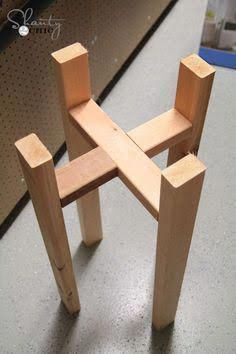Woodworking is a craft that has been practiced for centuries, encompassing both artistry and technical skill. From creating furniture to building boats and constructing buildings, woodworking plays a significant role in various industries. So, what jobs involve woodworking? This article will delve into the different career opportunities available for individuals with woodworking skills.
The art of woodworking involves shaping and joining wood to create functional or decorative objects. It requires precision, creativity, and a deep understanding of different types of wood and their properties. Whether it’s crafting intricate furniture pieces or constructing sturdy structures, woodworking is essential in many aspects of our lives.
In this article, we will explore the diverse range of job opportunities for woodworkers, including becoming a carpenter, furniture maker, woodworker in construction, boat builder, woodworking instructor, and more. Each career path offers its own unique challenges and rewards for those with a passion for working with wood. Let’s take a closer look at the skills required and the potential career prospects in these fields.
Carpenter
To excel in this field, carpenters need to possess a range of skills. These include proficiency in using woodworking tools such as saws, chisels, and planes; the ability to read blueprints and technical drawings; strong mathematical skills for measurements; physical strength and stamina; attention to detail; and good communication skills when working with clients or other tradespeople on a construction site.
In terms of career prospects, the demand for skilled carpenters remains steady across different industries. With experience and expertise, carpenters may have opportunities for advancement into supervisory or project management roles.
Moreover, as sustainable building practices gain traction in the construction industry, there is an increasing need for carpenters who are knowledgeable about eco-friendly materials and techniques. Overall, pursuing a career as a carpenter can offer stability as well as opportunities for growth and specialization within the field of woodworking.
- Constructing frameworks for buildings
- Installing fixtures such as windows and doors
- Repairing wooden structures
- Proficiency in using woodworking tools like saws,chisels;
- Ability to read blueprints & amp; technical drawings
- Strong mathematical skills
Furniture Maker
Woodworking enthusiasts who are skilled in the art of furniture making have a wide range of job opportunities available to them. The demand for custom-made, high-quality furniture continues to grow, providing various career prospects for those with the necessary skills. Here are some of the potential job opportunities for individuals with expertise in furniture making:
1. Custom Furniture Maker: Many furniture makers specialize in creating custom pieces tailored to their clients’ specific requirements. This may involve designing and constructing unique pieces such as dining tables, chairs, cabinets, and beds to suit individual preferences.
2. Restoration and Repair Specialist: Another avenue for furniture makers is specializing in restoring and repairing antique or damaged furniture. This may involve repairing broken parts, refinishing wood surfaces, or replacing worn-out upholstery.
3. Mass-Produced Furniture Designer: Some furniture makers work with manufacturers to design and produce furniture on a larger scale. This could include collaborating with companies to create new product lines or contributing to the improvement of existing designs.
The market demand for skilled furniture makers remains strong, particularly as consumers increasingly seek out one-of-a-kind pieces and sustainable craftsmanship. With the right combination of creativity, technical skill, and business acumen, individuals pursuing careers in this field can find fulfilling and financially rewarding opportunities within woodworking.
In addition to traditional woodworking jobs that focus on construction and utility structures like homes or buildings, there is also a market for artisanal woodworkers who create bespoke items like custom-made furniture or high-end cabinetry. These unique woodworking jobs can offer an outlet for artistic expression while also demanding precise technical skills to ensure a quality finished product that aligns with client expectations.
Woodworker in Construction
Woodworkers in construction play a crucial role in the building process, contributing their expertise to various aspects of construction projects. From framing to molding and finishing work, these skilled professionals are responsible for shaping and crafting wooden elements that are essential to the structural integrity and aesthetic appeal of buildings. Those wondering what jobs involve woodworking will find a wealth of opportunities within the construction industry.
One of the primary job opportunities for woodworkers in construction is in framing, where they are tasked with constructing the framework of buildings using timber or engineered wood products. This involves precise measurements, cutting, and assembly to ensure that the structure is sound and durable.
Additionally, woodworkers may specialize in molding work, which includes creating decorative trim, baseboards, crown molding, and other ornamental wooden elements that add visual interest to interiors. Furthermore, woodworkers also contribute to finishing work by installing wooden fixtures such as cabinets, countertops, and interior paneling.
In terms of career prospects, woodworkers with experience in construction can find employment with general contractors, subcontractors specializing in carpentry work, or custom home builders. As the construction industry continues to grow and evolve, there is a consistent demand for skilled woodworkers who can bring their expertise to residential and commercial building projects. With opportunities for specialization in areas such as sustainable building practices or historic preservation, there is ample room for professional growth and diverse experiences within this field.
Boat Building
Building and Repairing Wooden Boats
The job of a boat builder involves constructing and repairing wooden boats, yachts, and ships. This highly specialized craft requires a deep understanding of woodworking techniques, as well as knowledge of marine engineering and design principles. Boat builders work with a variety of wood types, including cedar, mahogany, oak, and teak, to create vessels that are not only functional but also aesthetically pleasing.
Skills Needed
To excel in boat building, individuals must possess strong woodworking skills, attention to detail, and the ability to interpret complex designs and blueprints. The nature of this job also demands physical strength and stamina, as boat builders often work with heavy materials and equipment. Additionally, an understanding of watercraft design principles is crucial for creating vessels that are safe, stable, and efficient in their performance.
Unique Challenges
One of the unique challenges that boat builders face is working with natural materials that are constantly exposed to harsh elements such as saltwater and UV radiation. This requires special treatment methods to protect the wood from decay and damage over time.
Additionally, boat building often involves customizing designs to meet the specific requirements of clients or adapting traditional techniques to modern demands. As such, boat building combines tradition with innovation in a way that sets it apart from other woodworking disciplines.
Boat building offers a fascinating blend of craftsmanship, creativity, and technical expertise, making it an attractive career option for those with a passion for woodworking combined with an interest in maritime heritage.
Woodworking Instructor
Teaching at Educational Institutions
Many vocational schools, community colleges, and technical institutes offer programs in woodworking, carpentry, and furniture making. Woodworking instructors at these institutions are responsible for creating lesson plans, teaching various techniques and safety protocols, as well as providing guidance on projects. They may also have opportunities to mentor students in internships or apprenticeships with local woodworking businesses.
Becoming an Independent Instructor
For woodworkers looking for more flexibility in their schedules and curriculum, becoming an independent instructor may be a viable option. This could involve offering private lessons from a home workshop, teaching workshops at woodworking events or conventions, or even creating online courses for a global audience. Independent woodworking instructors have the freedom to tailor their teaching methods to their own preferences and can cater to specific niches within the woodworking community.
Career Opportunities
Aspiring woodworkers who are interested in teaching will find that there is steady demand for skilled instructors in both educational institutions and independent settings. Moreover, those with experience and expertise in specialized areas of woodworking such as boat building or woodturning may find unique opportunities as instructors in these niche fields. Additionally, entrepreneurship opportunities also exist for those who wish to start their own woodworking schools or studios.
Overall, the role of a woodworking instructor provides individuals with a passion for the craft the chance to share their knowledge while also possibly generating additional income. Whether within institutional settings or through independent endeavors, becoming a woodworking instructor can be a rewarding way to contribute to the preservation and evolution of this timeless skill.
Woodworking as a Hobby
Many individuals who have a passion for woodworking may find themselves considering how to turn this hobby into a side business or even a full-time career. The appeal of creating unique, handcrafted items and the satisfaction of working with wood often inspire woodworking enthusiasts to explore ways of monetizing their skills. One avenue for pursuing this is by selling custom-made furniture, home decor, or other wooden items through online platforms such as Etsy or at local craft fairs.
Aside from selling finished products, woodworking hobbyists can also consider offering their expertise through teaching workshops, classes, or tutorials. This could be done in-person at local community centers or through online platforms such as YouTube or Skillshare. Sharing knowledge and skills not only helps others learn but also provides an additional source of income for the woodworking enthusiast.
For those serious about pursuing woodworking as a full-time career, it’s important to conduct thorough market research to understand the demand for certain types of products. Whether it’s custom furniture, home renovations, or specialty items like wooden toys or instruments, identifying a niche in the market can set woodworking enthusiasts on the path towards a successful career.
Additionally, obtaining proper training and certification in woodworking and business management can provide aspiring professionals with the necessary tools to succeed in this field.
| Woodworking Business Ideas | Income Potential |
|---|---|
| Selling custom-made furniture | $30,000 – $70,000 annually |
| Teaching workshops/classes | $20 – $80 per hour |
| Specializing in niche wooden products (toys, instruments) | $40,000 – $120,000 annually |
Woodworking in Art and Design
Woodworking is not only limited to creating functional items such as furniture and structures. It also plays a significant role in the world of art and design, where wood is utilized to produce intricate art installations, sculptures, and custom design projects. This aspect of woodworking allows for creativity and artistic expression, making it an appealing career path for individuals with a passion for both woodworking and the arts.
Art installations often incorporate various materials, including wood, to create immersive and thought-provoking environments. Woodworking artists may be involved in the design, construction, and installation of these large-scale pieces, working closely with other artists, designers, and clients to bring their vision to life. The demand for skilled woodworking artisans in the realm of art installations is substantial, as these projects are sought after by galleries, museums, event spaces, and public institutions.
Sculptures crafted from wood are another form of artistic expression that showcases the versatility of woodworking. Woodworkers skilled in sculpting can create stunning pieces that range from figurative representations to abstract works. Whether working on small-scale sculptures or large outdoor installations, woodworking sculptors use their expertise to shape and manipulate wood into captivating forms that evoke emotion and captivate audiences.
In the realm of custom design projects, woodworking professionals have the opportunity to collaborate with architects, interior designers, and individual clients to create bespoke pieces that elevate spaces with beauty and functionality. This may include crafting unique furniture pieces, decorative elements such as wooden paneling or moldings, or even custom fixtures that become focal points in residential or commercial settings.
Working in art and design allows individuals with woodworking skills to merge craftsmanship with creativity while contributing to meaningful projects that enrich public spaces and private settings alike.
| Woodworking Art Forms | Description |
|---|---|
| Art Installations | Involves designing and constructing large-scale pieces for galleries, museums,and public spaces |
| Sculptures | Crafting figurative or abstract works from wood through carving techniques |
| Custom Design Projects | Collaborating with architects and designers to create bespoke furniture,and decorative elements |
Conclusion
In conclusion, the field of woodworking offers a wide range of job opportunities for individuals with the necessary skills and passion for working with wood. From traditional carpentry and furniture making to more specialized roles in construction, boat building, and art and design, there are numerous avenues for those interested in pursuing a career in this field.
Whether it’s creating functional pieces for everyday use or intricate works of art, woodworking provides a fulfilling and varied career path for those who are willing to hone their craft.
For those interested in working with their hands and creating practical, long-lasting items, a career as a carpenter or furniture maker may be appealing. These roles require precision, attention to detail, and the ability to bring designs to life.
Woodworkers with an interest in construction can find opportunities to specialize in framing, molding, finishing work, and other aspects of building with wood. Building and repairing wooden boats is another niche but rewarding career path that combines woodworking skills with a love for the water.
Furthermore, for individuals who are passionate about sharing their knowledge and skills with others, becoming a woodworking instructor can be a fulfilling way to pass on the craft to future generations. Additionally, there is potential for woodworking enthusiasts to turn their hobby into a side business or full-time career by selling custom pieces or offering woodworking classes. The possibilities within this field are truly diverse and offer something for everyone interested in pursuing what jobs involve woodworking.
Frequently Asked Questions
What Occupation Is a Woodworker?
A woodworker is someone who works with wood to create furniture, cabinets, and other wooden structures. They may use hand tools or power tools to cut, shape, and assemble wood into a finished product. Woodworkers can also specialize in different areas such as cabinetry, carpentry, or fine woodworking.
What Is the Highest Paid Woodworking Job?
The highest paid woodworking job is typically that of a master furniture maker or a specialized wood craftsman. These professionals have honed their skills over many years and can demand higher prices for their custom-made pieces. Additionally, woodworking instructors or consultants with decades of experience can also command high salaries due to their expertise in the field.
Can Woodworking Be a Career?
Woodworking can absolutely be a career for those who are passionate about working with wood and creating functional or artistic pieces. Many woodworkers start as apprentices or attend trade schools to learn the necessary skills before launching their own business or joining established woodworking companies. With dedication and skill development, woodworking can be a fulfilling and sustainable career path.

Hi everyone! I’m a woodworker and blogger, and this is my woodworking blog. In my blog, I share tips and tricks for woodworkers of all skill levels, as well as project ideas that you can try yourself.





